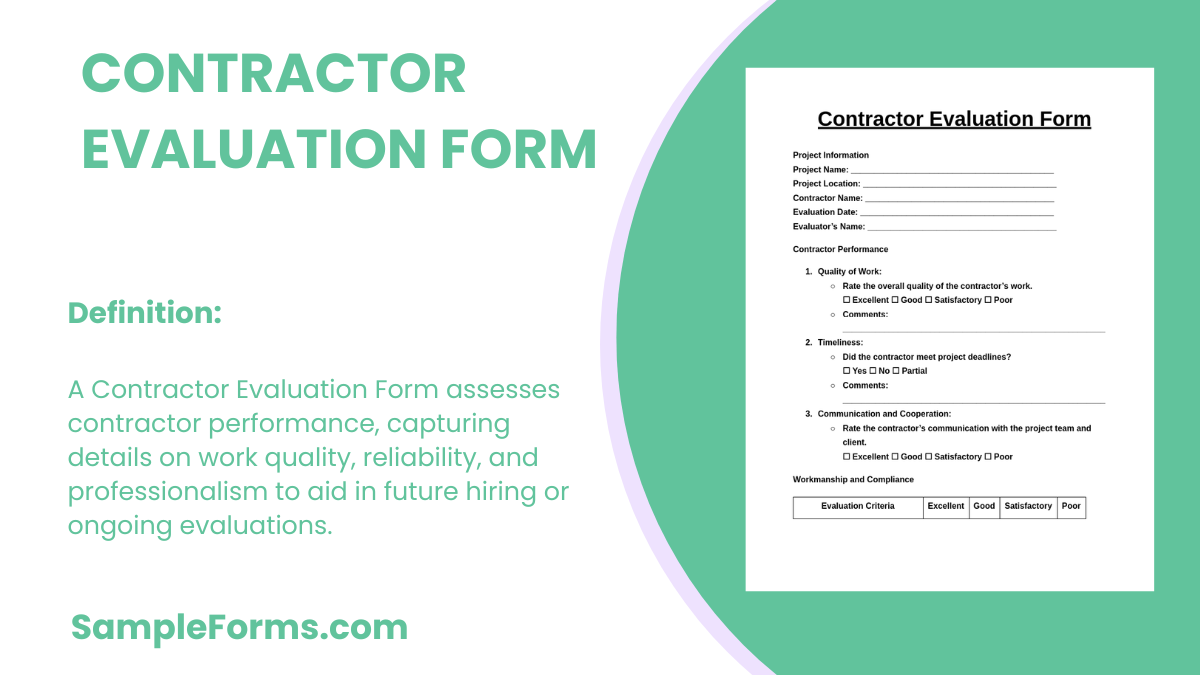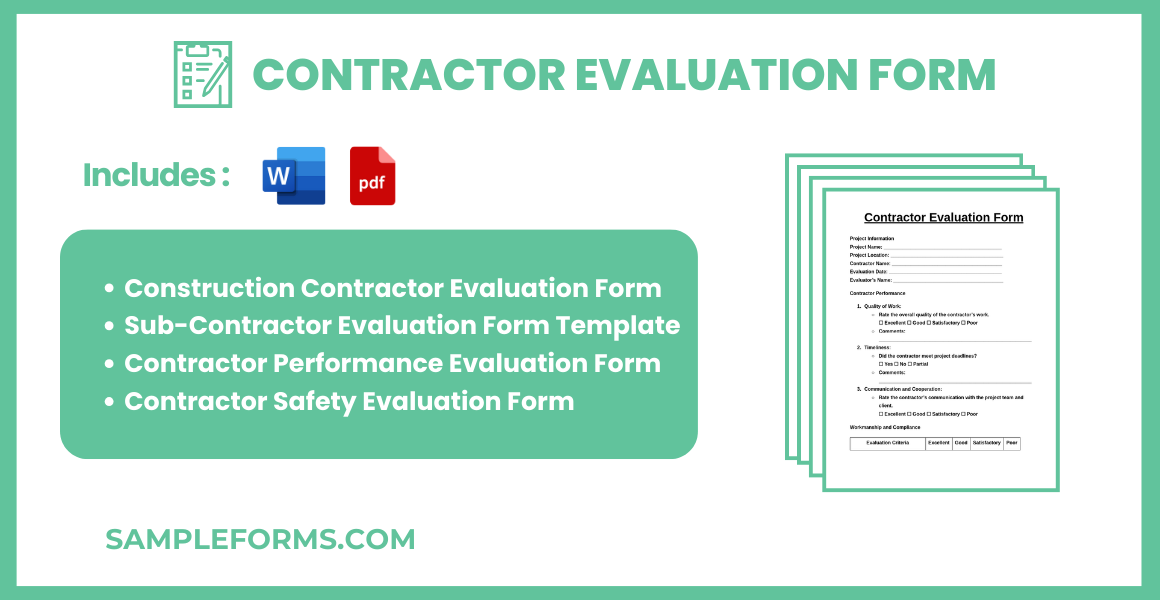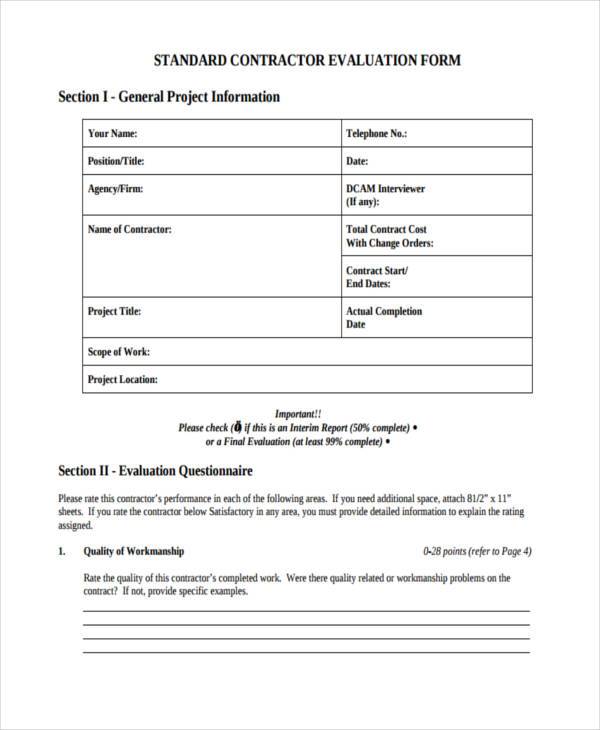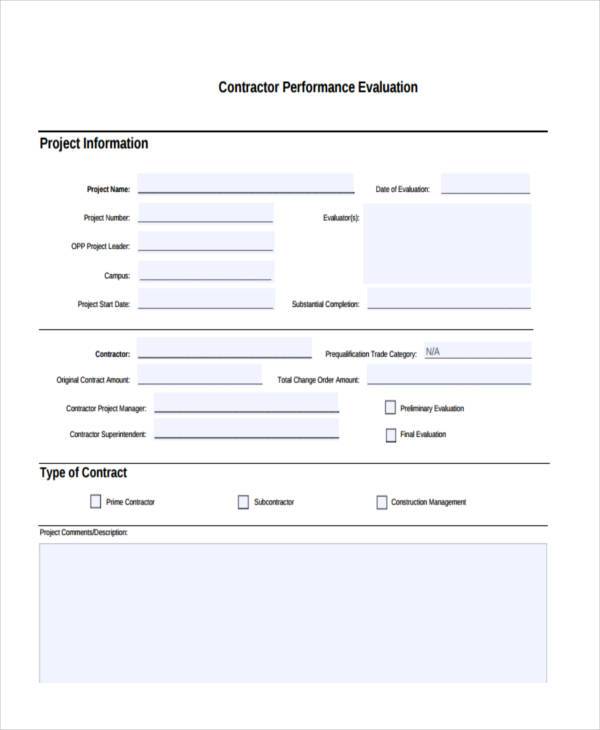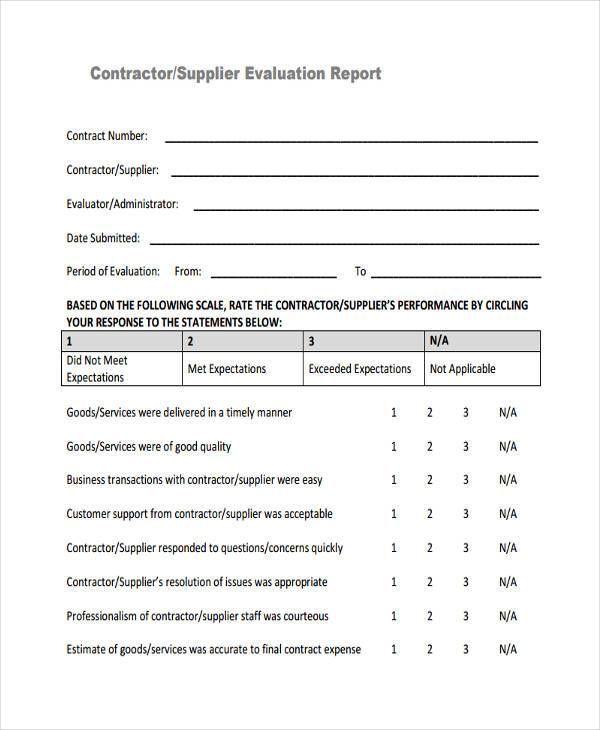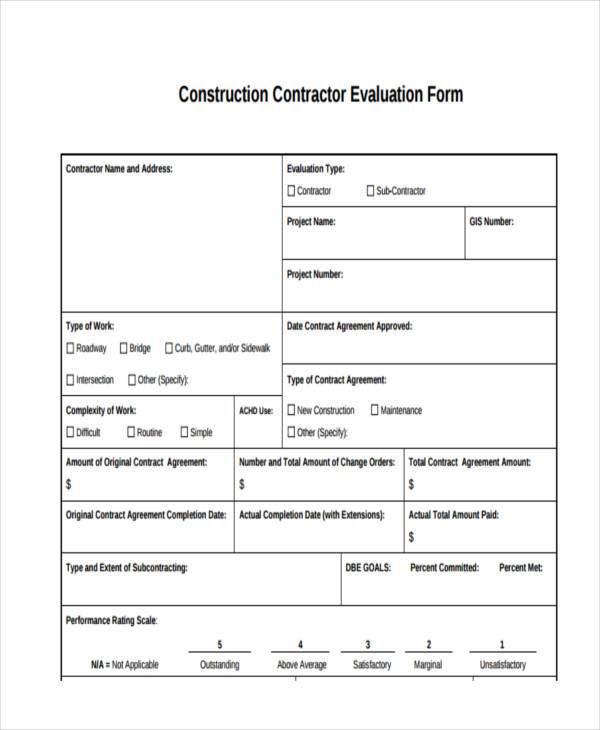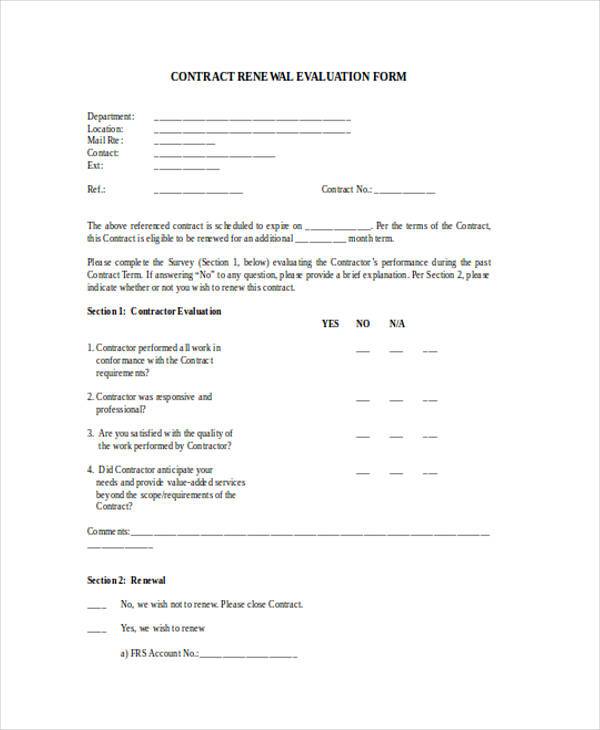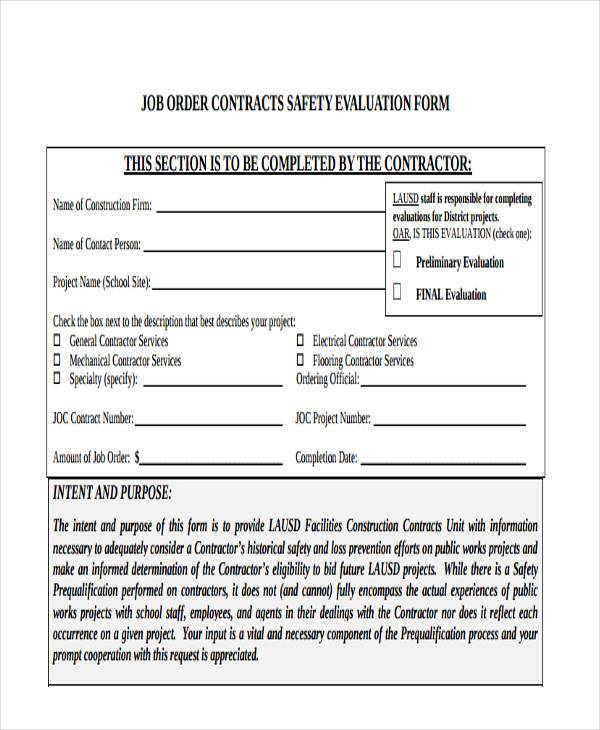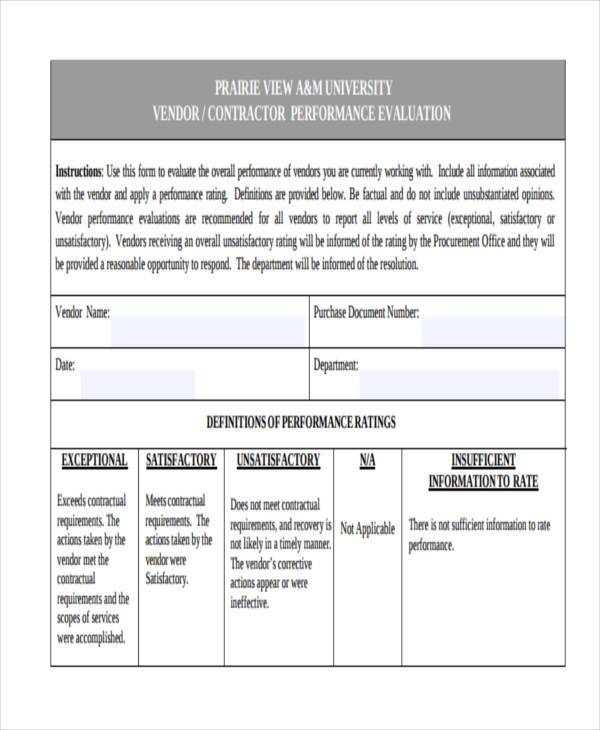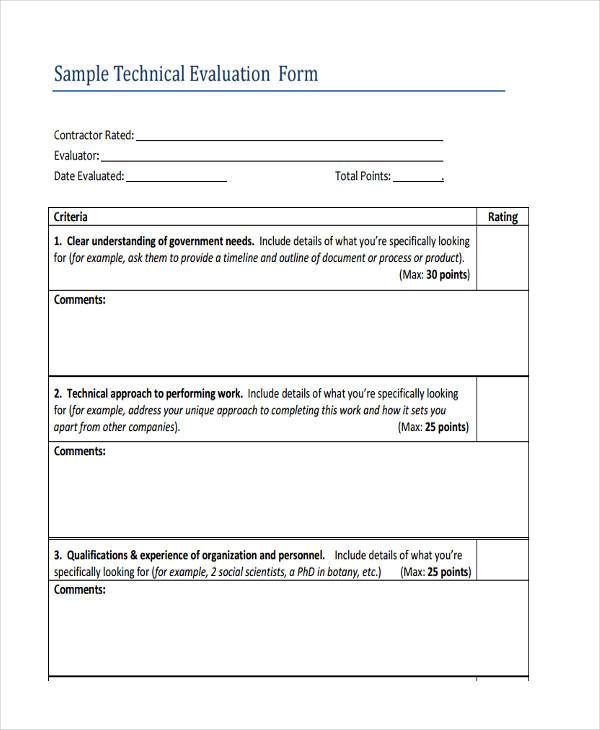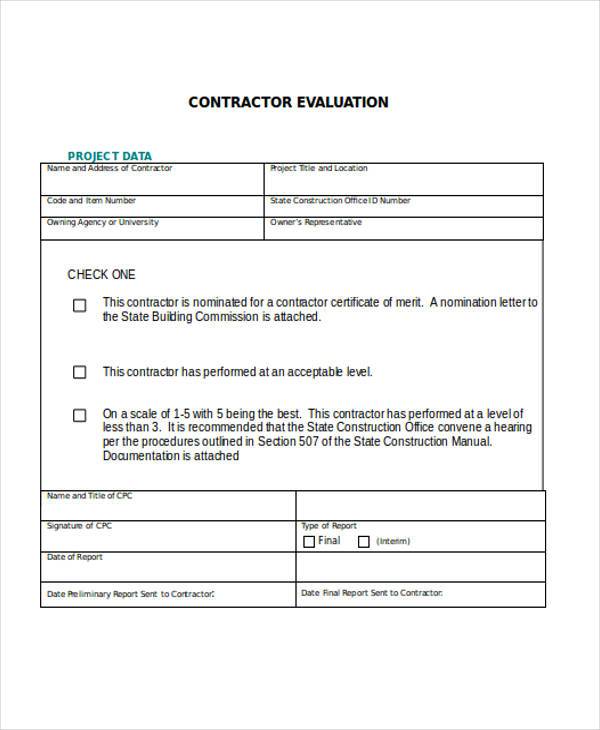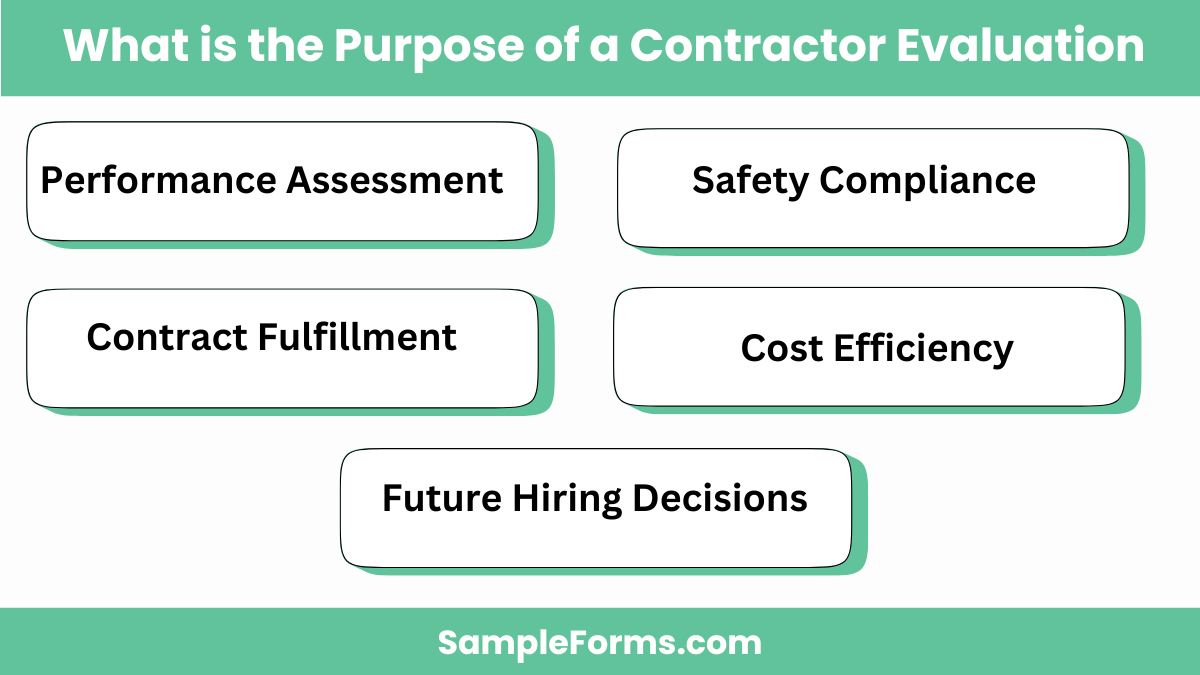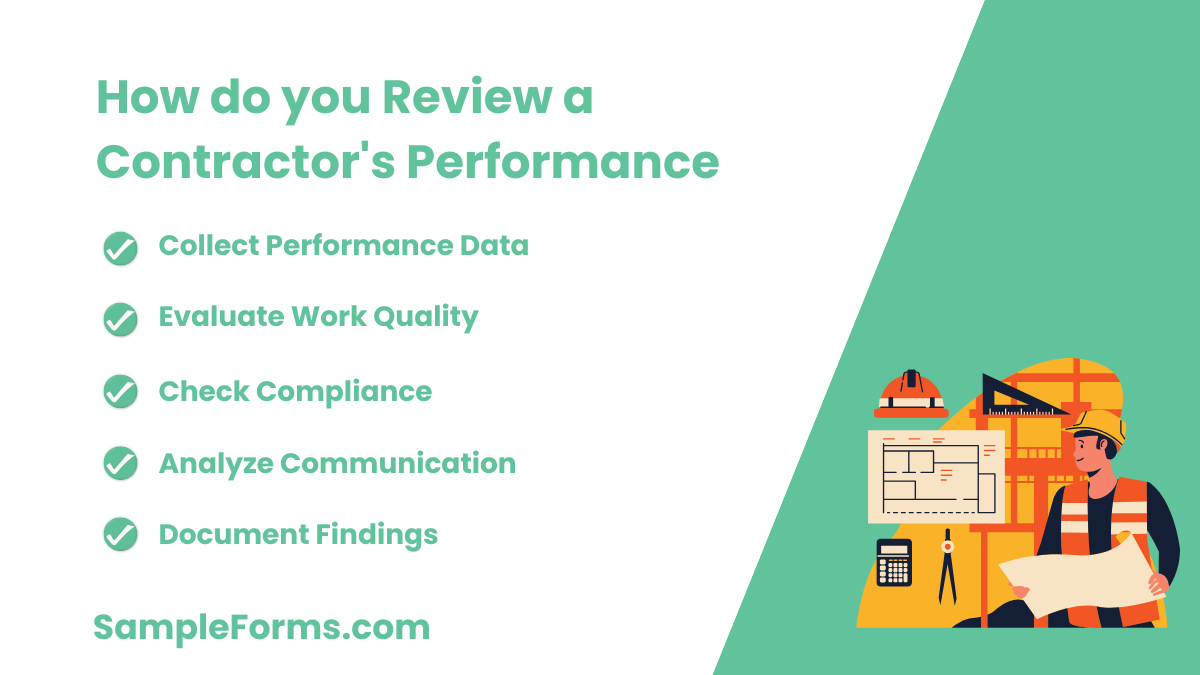A Contractor Evaluation Form is an essential tool for assessing contractor performance, ensuring project quality, and fostering long-term business relationships. This guide provides comprehensive information on creating effective evaluation forms that streamline the contractor assessment process. By focusing on critical factors like work quality, compliance, timeliness, and communication, you’ll make informed decisions and secure the best talent. Incorporate essential sections, such as a contractor contract form and evaluation form, to track performance metrics and maintain organized records for project success.
Download Contractor Evaluation Form Bundle
What is Contractor Evaluation Form?
A Contractor Evaluation Form is a structured document used to assess contractors’ performance based on specific project criteria. This form evaluates the quality of work, adherence to timelines, compliance with safety regulations, and overall reliability. It’s a valuable tool for organizations to ensure their contractors meet project expectations and deliver as promised. Contractor evaluation forms help companies make informed decisions on future engagements, fostering dependable partnerships. Consistently using this form strengthens project outcomes and contractor accountability.
Contractor Evaluation Format
Contractor Information:
- Contractor’s Full Name
- Project/Assignment Title
- Evaluator’s Name and Position
- Date of Evaluation
Project Overview:
- Brief description of the project
- Contractor’s role and primary responsibilities
Work Quality:
- Evaluation of accuracy, attention to detail, and quality of work
- Specific examples (if available)
Timeliness and Dependability:
- Assessment of adherence to deadlines
- Reliability and consistency in meeting project timelines
Professionalism:
- Contractor’s communication skills
- Interactions with team members and clients
Areas for Improvement:
- Constructive feedback on areas for improvement
- Suggestions for skill or practice enhancement
Overall Evaluation Summary:
- Summary of performance: met, exceeded, or fell short of expectations
Signature and Date:
-
- Evaluator Signature
- Date
Construction Contractor Evaluation Form
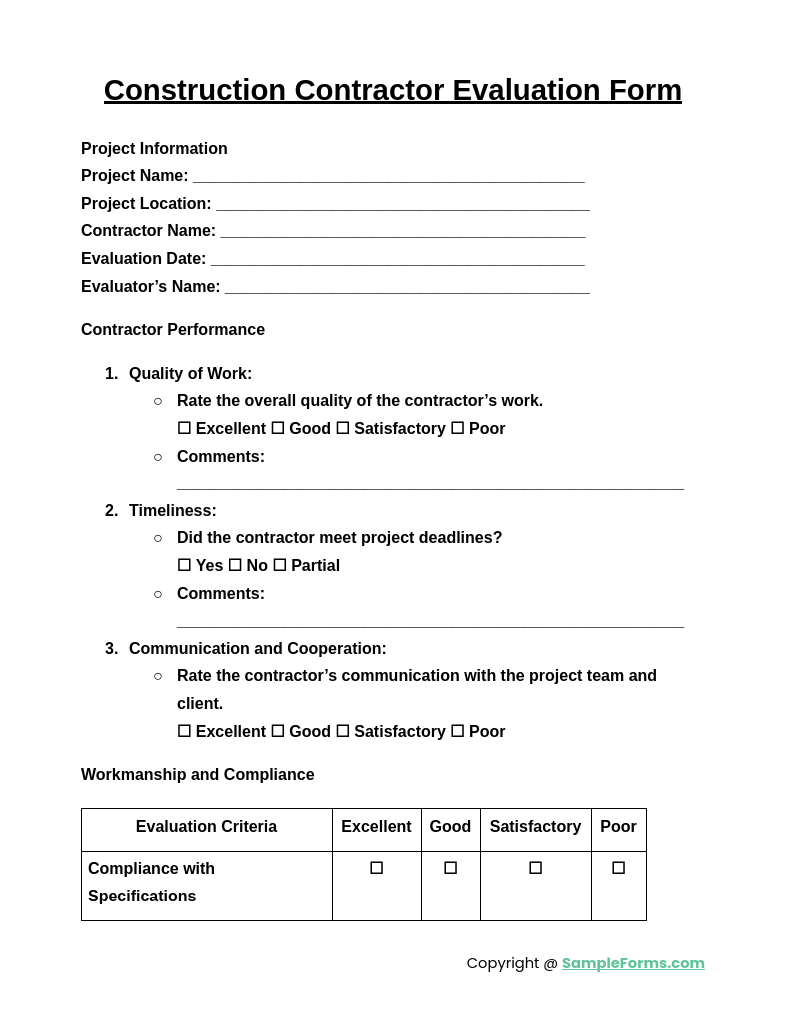
A Construction Contractor Evaluation Form is essential for assessing the quality, timeliness, and reliability of construction contractors. This form enables project managers to evaluate work performance, adherence to project timelines, and overall project quality. By including criteria like communication skills and worksite management, the form ensures standards are met. Adding sections for contractor feedback and follow-up actions makes it comprehensive, providing valuable insights for future projects. For larger projects, including a contractor warranty form adds value by ensuring post-completion reliability.
Sub-Contractor Evaluation Form Template
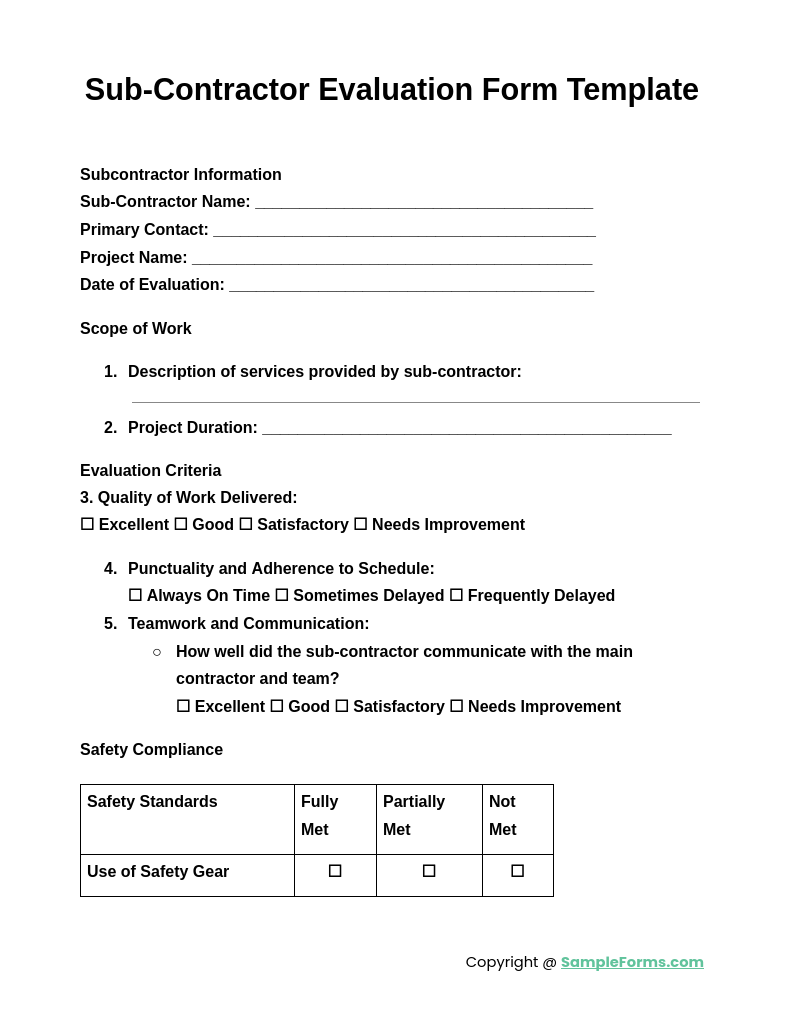
The Sub-Contractor Evaluation Form Template allows main contractors or project managers to assess the performance and compliance of sub-contractors. This template includes key metrics such as work quality, adherence to project specifications, punctuality, and safety compliance. With a section dedicated to collaboration and communication, this form ensures cohesive teamwork among contractors. To support contract compliance, adding fields for volunteer evaluation form details can improve accountability and performance tracking in future collaborations.
Contractor Performance Evaluation Form
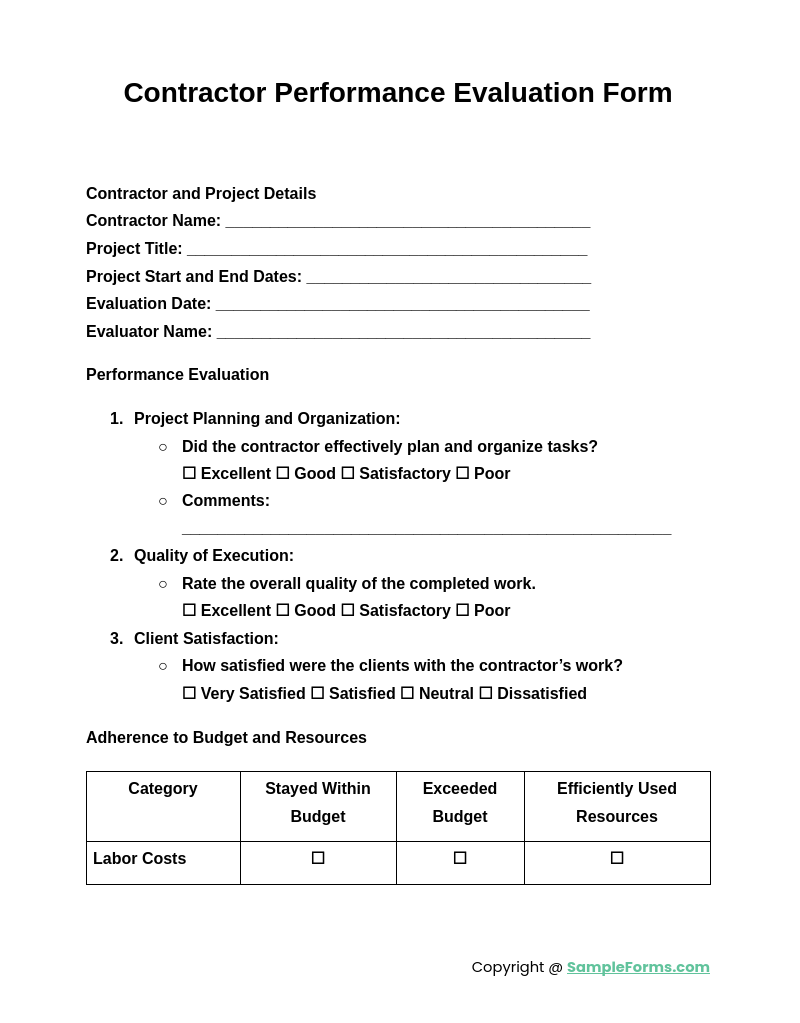
A Contractor Performance Evaluation Form helps organizations assess contractor effectiveness based on their quality of work, timeliness, communication, and adherence to project specifications. This form provides an organized way to give feedback and identify areas for improvement, ensuring consistent contractor performance. By including specific fields for project milestones, completed work assessments, and client satisfaction, the evaluation becomes more impactful. Incorporating an optional section for contractor proposal form feedback can guide enhancements in future contractor proposals and selections.
Contractor Safety Evaluation Form
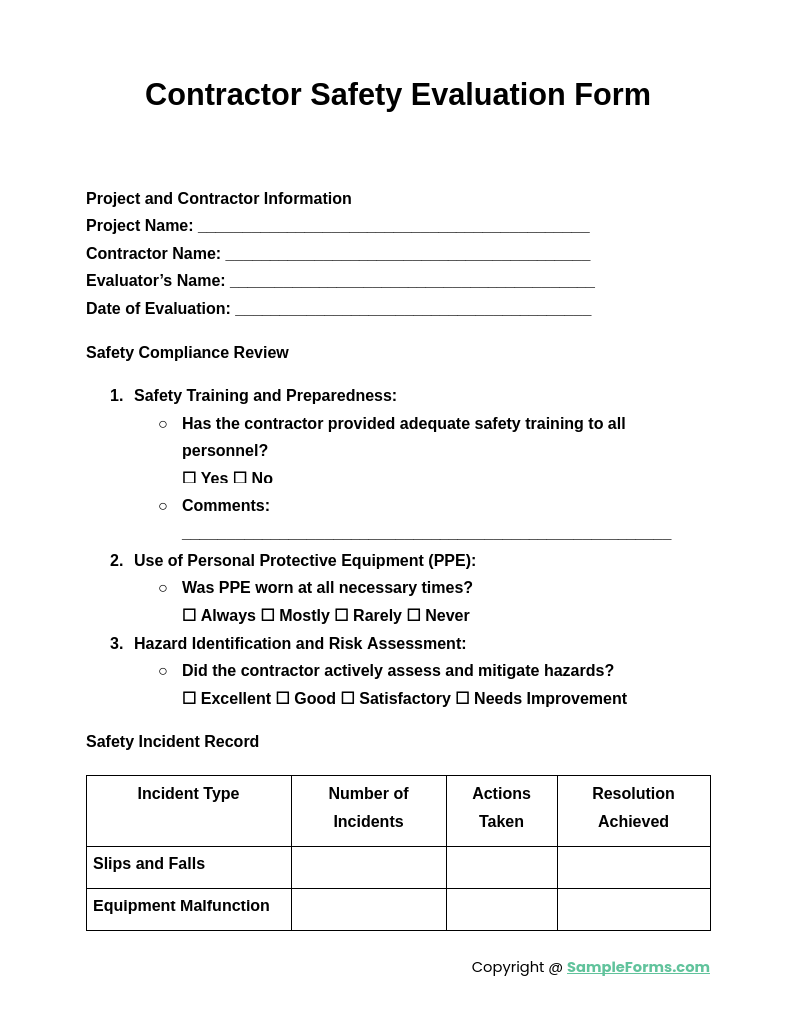
The Contractor Safety Evaluation Form evaluates contractor adherence to safety protocols and regulatory requirements on the job site. This form covers areas like equipment handling, PPE use, compliance with site safety standards, and incident response preparedness. By focusing on these safety aspects, organizations ensure safe work practices are consistently followed. Including fields for potential hazards, emergency contacts, and safety training history enhances the form’s functionality. An additional section for safety-related metrics, like those in a contractor estimate form, can support precise project planning and resource allocation.
Browse More Contractor Evaluation Forms
Standard Contractor Evaluation Form
Contractor Performance Evaluation Form
Contractor Evaluation Form in PDF
General Contractor Evaluation Form
Contract Renewal Evaluation Form
Contractor Safety Evaluation Form
Contractor Evaluation Form Example
Contractor Technical Evaluation Form
Contractor Evaluation Form in Word Format
What is the purpose of a contractor evaluation?
The purpose of a contractor evaluation is to assess performance, reliability, and adherence to project standards, ensuring quality and consistency in completed work.
- Performance Assessment: Evaluates work quality, timeliness, and adherence to standards.
- Safety Compliance: Ensures contractors follow safety protocols, minimizing workplace hazards.
- Contract Fulfillment: Confirms obligations in the construction employee evaluation form are met.
- Cost Efficiency: Analyzes cost management and efficient resource use.
- Future Hiring Decisions: Provides insight into suitability for future projects.
What are the criteria for contractor evaluation?
Contractor evaluation criteria cover quality, reliability, communication, compliance, and cost-effectiveness to support informed decisions on contractor performance and future engagements.
- Quality of Work: Reviews craftsmanship, attention to detail, and adherence to specifications.
- Timeliness: Evaluates project completion within set deadlines.
- Budget Management: Considers alignment with the contractor payment form budget.
- Safety Standards: Assesses adherence to safety regulations and incident prevention.
- Communication: Checks responsiveness, professionalism, and clarity in interactions.
How to evaluate a construction contractor?
Evaluating a construction contractor involves reviewing their work quality, adherence to timelines, safety compliance, and communication effectiveness.
- Set Clear Objectives: Define evaluation goals related to project standards and deadlines.
- Monitor Work Progress: Regularly inspect completed milestones for quality and alignment with the contractor receipt form.
- Track Timelines: Ensure projects are progressing as planned, meeting set timelines.
- Evaluate Safety Practices: Confirm compliance with industry safety guidelines and risk management.
- Conduct Post-Project Review: Review outcomes to determine contractor suitability for future work.
What does a good evaluation include?
A good evaluation includes an objective assessment of performance, quality, safety, communication, and cost efficiency, providing a comprehensive contractor analysis.
- Work Quality: Examines the craftsmanship and final deliverables.
- Budget Adherence: Confirms alignment with project budgets and contractor bid form expectations.
- Timely Completion: Assesses completion according to the agreed schedule.
- Safety Compliance: Reviews adherence to safety practices and regulations.
- Client Satisfaction: Gathers feedback from stakeholders for a holistic view.
How do you review a contractor’s performance?
Reviewing contractor performance requires evaluating quality, timeliness, professionalism, and project outcomes, offering insight into strengths and areas for improvement.
- Collect Performance Data: Gather records, including the contractor affidavit form, for comprehensive evaluation.
- Evaluate Work Quality: Assess the quality and durability of the completed work.
- Check Compliance: Verify alignment with contract terms in the independent contractor agreement form.
- Analyze Communication: Review communication effectiveness throughout the project.
- Document Findings: Record strengths and improvement areas to inform future collaborations.
How do I make my own evaluation form?
To create your evaluation form, define goals, select key criteria, and structure sections for feedback. Using a training evaluation form approach, you can gather actionable insights for performance improvement.
What is a good evaluation form?
A good evaluation form is clear, concise, and includes relevant criteria that align with evaluation goals. It enables structured feedback, much like an independent contractor form that simplifies performance tracking.
How would you describe a good contractor?
A good contractor is reliable, communicates well, meets deadlines, and delivers quality work. This professional approach ensures strong project outcomes, aligning with criteria in any contractor agreement form.
When you begin your contractor evaluation you should consider?
Begin by defining performance metrics, setting clear expectations, gathering relevant data, and organizing evaluation sections. For balanced feedback, consider using a structure similar to an employee self evaluation form.
How do you assess a contractor?
Assess a contractor by reviewing work quality, adherence to deadlines, safety compliance, and communication. An interview evaluation form format helps structure the assessment for accurate results.
Can you give a contractor a performance review?
Yes, providing a structured performance review strengthens communication and identifies improvement areas, similar to a peer evaluation form that promotes professional development and project success.
How do I leave a review for a contractor?
To leave a review, describe the project, highlight strengths, and mention areas for improvement. Ensure your feedback is constructive, following a presentation evaluation form approach for clarity.
How do I give a bad review to a contractor?
A bad review should be professional, focusing on specific issues like quality, delays, or communication. Use a constructive tone, similar to a call monitoring evaluation form for effective feedback.
How do you know if a contractor is good?
A good contractor demonstrates reliability, quality work, clear communication, and adherence to timelines. These characteristics are evident in consistent performance, similar to a food sensory evaluation form for quality checks.
Why is it critical to evaluate contractor performance?
Evaluating contractor performance ensures quality, timeliness, and compliance, helping maintain project standards. Structured evaluations, as with a speech evaluation form, foster accountability and continuous improvement in contractor relations.
In conclusion, a Contractor Evaluation Form: Sample, Forms, Letters, Use is an invaluable resource for maintaining high standards in contractor partnerships. This form allows companies to track and evaluate contractor performance effectively, offering structured feedback to improve project outcomes. From initial project alignment to post-completion assessment, these forms support clear communication and transparent expectations, as seen in a property evaluation form. This practice ensures contractors consistently meet quality and timeline expectations, enhancing the reliability and success of future collaborations.
Related Posts
-
FREE 6+ Business Credit Checklist Forms in PDF
-
Employee Pay Increase Form
-
Chef Evaluation Form
-
FREE 8+ Kitchen Evaluation Forms in PDF | MS Word
-
Customer Service Evaluation Form
-
FREE 15+ Grant Evaluation Forms in PDF | MS Word
-
FREE 14+ Volunteer Evaluation Forms in PDF
-
Mentee Evaluation Form
-
Speaker Evaluation Form
-
FREE 14+ Vehicle Evaluation Forms in PDF
-
FREE 14+ Trainee Evaluation Forms in MS Word | PDF
-
Resume Evaluation Form
-
FREE 14+ Retreat Evaluation Forms in PDF
-
Debate Evaluation Form
-
FREE 14+ Book Evaluation Forms in PDF | MS Word
